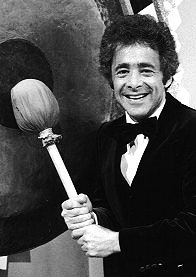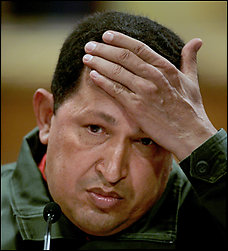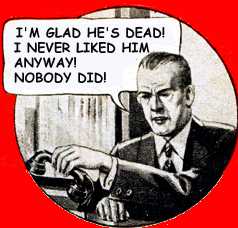 Files in a laptop computer seized from the wreckage of a Colombian rebel camp in Ecuador offer new insights into Venezuelan President Hugo Chavez's desire to undermine Colombia's U.S.-allied government. Files in a laptop computer seized from the wreckage of a Colombian rebel camp in Ecuador offer new insights into Venezuelan President Hugo Chavez's desire to undermine Colombia's U.S.-allied government.
If authentic, the computer files suggest Chavez has been in league with the rebels for more than a decade.
While Chavez is not one of the correspondents, his sentiments are conveyed in numerous messages exchanged by the rebels.
Venezuela contends the texts are lies and fabrications.
If so, they are expertly done.
Not only do they offer an unprecedented glimpse into the rebels' mind-set, they also reflect deepening rebel contacts with European governments and even representatives of the United States, who have tried to negotiate the release of dozens of hostages.
They are signed electronically by the most powerful men in the leftist Revolutionary Armed Forces of Colombia, or FARC, the hemisphere's oldest and most potent rebel movement.
Those signing the documents include Raul Reyes, the FARC's foreign minister and public face, who was killed when Colombian commandos raided his jungle hideout in Ecuador on Saturday. His killing, along with 23 of his comrades, struck a chilling blow to the group.
Others who signed messages include Manuel Marulanda, the rebels' 77-year-old supreme leader; Jorge Briceno, their much-feared field marshal, and Ivan Marquez, the insurgents' apparent go-between with Chavez. Marquez is believed to live in Venezuela.
Copies of 13 documents were sent to reporters Tuesday by Colombia's national police chief, Gen. Oscar Naranjo. He revealed their existence Sunday as his government came under a withering diplomatic attack for violating Ecuador's territory with the raid.
They indicate that Chavez, seeking to raise the FARC's stature and relieve it of its international pariah status, shares their goal of isolating and discrediting Colombia's president, Alvaro Uribe.
But do they prove that Venezuela was actually financing the FARC's bid to overthrow a democratically elected government? That's not clear.
Naranjo alleges that the number "300," also called the "dossier" in a Dec. 23 message signed by Marquez, refers to a $300 million gift from Chavez to the rebels.
In a Jan. 14 missive, Briceno discusses what to do with the "dossier."
"Who, where, when and how will we receive the dollars and store them?" he asks fellow members of the FARC's seven-man ruling secretariat.
Uribe has worked as no other Colombian president to defeat the FARC. So it's no surprise that in the Jan. 14 message, Briceno discusses a desire to undermine Uribe by making him cede a safe haven to the rebels for talks on a prisoner swap.
"Uribe will become more isolated, together with his boss from the North," the text says a clear reference to President Bush, whose government provides Colombia with some $600 million a year in military aid.
In a document dated Feb. 9, Marquez passes along Chavez's thanks for a $150,000 gift when he was imprisoned from 1992-94 for leading a failed coup and indicates Chavez's desire to smear Uribe.
In it, Marquez says Venezuela wants documentation of damage by Colombia's military to "the civilian population, also images of bombardments in the jungle and its devastation to use as a denunciation before the world."
In a Feb. 8 letter, Marquez discusses Chavez's plan to try to persuade leading Latin American nations to help get the FARC removed from lists of international terror groups.
And at least three of the documents express Chavez's deep desire to meet with Marulanda, hopefully on Venezuelan soil. Marulanda has reportedly never left Colombia.
Marquez also says Chavez is prepared to offer Venezuelan territory for the FARC's desired prisoner swap, which would be a huge embarrassment for Uribe. The FARC has proposed exchanging some 40 hostages, including three U.S. military contractors, for hundreds of rebels currently in Colombia's jails. The FARC captured the three when their surveillance plane crashed in February 2003.
In the Feb. 9 letter, Marquez also relays Chavez's concern about the 60-year U.S. prison sentence given to FARC commander Ricardo Palmera for conspiring to hold the three Americans hostage. He writes that Chavez "was disposed to hire paid lawyers," presumably for Palmera.
The messages indicate Chavez believes his rebel sympathies may have hurt him politically. One communication said Chavez told a rebel contact that this public support may have contributed to his loss of a Dec. 2 referendum that would have consolidated his power.
Chavez's ally, Ecuadorean President Rafael Correa, was similarly engaged with the rebels, the documents indicate.
Before Saturday's raid, Correa's official position was that he wouldn't take sides. But in a Jan. 18 message, Reyes says he received Ecuadorean Internal Security Minister Gustavo Larrea and another envoy who expressed Correa's interest "in making official relations with the FARC's leadership."
Correa's government was willing "to change officers in the security forces who have been hostile to communities and civilians" in the border area where the FARC has camps, Reyes said. Ecuador even offered to "give documentation and protection to one of ours," he wrote.
Larrea has acknowledged the meeting but said it was only to press for the hostages' release.
The rebels have released six hostages all Colombian politicians since Uribe tried to end Chavez's mediation role with the FARC in November, accusing the Venezuelan president of overstepping his mandate. The most recent to be freed said last week that hostage Ingrid Betancourt, a former presidential candidate who also holds French citizenship, is extremely ill.
Betancourt has become a cause celebre in France. French contacts with Reyes are mentioned in several documents, including a request that the French envoy, identified only as "Noe," be granted a meeting with Marulanda.
References to U.S. diplomatic overtures are scintillating, if vague.
In a Dec. 11 message to the secretariat, Marquez writes: "If you are in agreement, I can receive Jim and Tucker to hear the proposal of the gringos."
Writing two days before his death, Reyes tells his comrades that "the gringos," working through Ecuador's government, are interested "in talking to us on various issues."
"They say the new president of their country will be (Barack) Obama," he writes, saying Obama rejects both the Bush administration's free trade agreement with Colombia and the current military aid program.
Reyes writes that his response to the Americans was that the United States would have to publicly express these positions. |
 Defence ministry sources told media that Alfonso Cano had been killed in an army operation in the mountains in the south-west of the country.
Defence ministry sources told media that Alfonso Cano had been killed in an army operation in the mountains in the south-west of the country. 
 THE Colombian army has killed the security chief of the Marxist FARC's top commander, in what officials claim is a blow against the guerrillas.
THE Colombian army has killed the security chief of the Marxist FARC's top commander, in what officials claim is a blow against the guerrillas. In an attempt to take distance from the Colombian guerrilla following claims of his alleged links with the rebels presented by Bogota before the Organization of American States, OAS, President Hugo Chavez said that "Colombian armed groups must reconsider their armed strategy".
In an attempt to take distance from the Colombian guerrilla following claims of his alleged links with the rebels presented by Bogota before the Organization of American States, OAS, President Hugo Chavez said that "Colombian armed groups must reconsider their armed strategy". Colombian President Alvaro Uribe says security forces have foiled a plan by FARC rebels to assassinate the country's defense chief.
Colombian President Alvaro Uribe says security forces have foiled a plan by FARC rebels to assassinate the country's defense chief.  Colombia's largest rebel group today confirmed the death of its top leader,
Colombia's largest rebel group today confirmed the death of its top leader,  IN ANNOUNCEMENTS that have sent shockwaves through the region, Colombia has said that the leader of Latin America's longest-running insurgency is dead, and that some of its leaders are ready to free the high-profile hostage Ingrid Betancourt.
IN ANNOUNCEMENTS that have sent shockwaves through the region, Colombia has said that the leader of Latin America's longest-running insurgency is dead, and that some of its leaders are ready to free the high-profile hostage Ingrid Betancourt. The top commander and founder of Colombia's FARC rebel force is dead after more than 40 years fighting against the state from jungle and mountain camps, a government source said on Saturday.
The top commander and founder of Colombia's FARC rebel force is dead after more than 40 years fighting against the state from jungle and mountain camps, a government source said on Saturday. Files in a laptop computer seized from the wreckage of a Colombian rebel camp in Ecuador offer new insights into Venezuelan President Hugo Chavez's desire to undermine Colombia's U.S.-allied government.
Files in a laptop computer seized from the wreckage of a Colombian rebel camp in Ecuador offer new insights into Venezuelan President Hugo Chavez's desire to undermine Colombia's U.S.-allied government. When it comes to buying souvenirs, anti-globalization activists have found a shopping paradise at the World Social Forum. From "Che" Gueverra T-shirts to books on "21-Century Socialism" and "Low-impact backpacking," Venezuela's street vendors are offering just about anything a leftist activist might want, eager to capitalize on the gathering of more than 60,000 people.
When it comes to buying souvenirs, anti-globalization activists have found a shopping paradise at the World Social Forum. From "Che" Gueverra T-shirts to books on "21-Century Socialism" and "Low-impact backpacking," Venezuela's street vendors are offering just about anything a leftist activist might want, eager to capitalize on the gathering of more than 60,000 people.